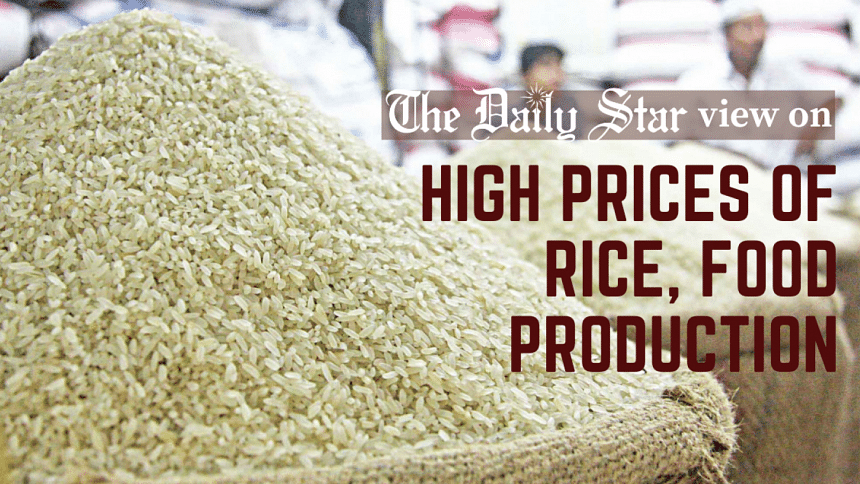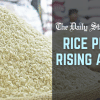Food ministry must do better to control prices of rice

The food ministry has clearly a lot to answer for, its failure to control prices of food, especially rice, being prominent among them. To be fair, it is neither the only ministry struggling to contain soaring prices, nor is it to blame for the ongoing economic crisis caused by a combination of bad policies, governance failures, and market influences from beyond, which created the domino effect. But it does have the vital responsibility of making sure food is available at affordable prices, by doing whatever necessary, something it has miserably failed to do.
It has neither enough manpower nor, apparently, enough willpower to launch effective drives against illegal hoarding of rice and paddy across the country, and go after the syndicates of traders responsible for the current situation. As a result, we witnessed how the prices of rice increased twice in just four days last week. On Friday, our correspondents in several districts found that the lowest price of any variety of rice was Tk 52. Over the last one week, the prices of both coarse and fine rice varieties rose by Tk 5 to Tk 10 per kg in retail markets. A kilogram of coarse rice like Swarna is being sold at Tk 52 to Tk 54. The situation is almost similar for the fine rice varieties, with Miniket selling at Tk 70 and Nazirshail at Tk 90-95 per kg.
But after every instance of price manipulation, the authorities seem to start from the scratch, taking baby steps when they should be taking giant steps given the urgency of the situation.
As the government scrambles to stop big rice millers, importers and wholesalers from stockpiling rice/paddy or randomly increasing prices, the usual blame game has, once again, been afoot. No one is willing to take responsibility. There is no reliable mechanism to establish culpability either. This only delays or derails action. And it's really unfortunate because you would expect that the government, having many businessmen-turned-MPs in the policy circle, would by now be able to see through the machinations of traders and make effective interventions. But after every instance of price manipulation, they seem to start from the scratch, taking baby steps when they should be taking giant steps given the huge crisis facing the poor and people of low or fixed income.
As a result, despite ongoing efforts, dishonest businessmen continue to find a way to destabilise the market. This is particularly worrying ahead of the Aman harvest season of November-December, with the low yield of Boro (due to flooding), low rice imports despite last month's reduction in import duty, and increased prices of urea fertiliser all coming into play. It portends further disruptions down the line. We need to be preventive rather than reactive to avert this eventuality.
We urge the authorities to take firm steps to bring down the prices of food and food production and punish corrupt traders. They must see the problem as a consequence of both governance and policy failures, including factors like consecutive hikes in prices of fuel, fertilisers and utilities, and fashion their response accordingly. Only then can they alleviate the suffering of ordinary consumers.


 For all latest news, follow The Daily Star's Google News channel.
For all latest news, follow The Daily Star's Google News channel. 






Comments